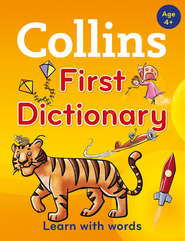По всем вопросам обращайтесь на: info@litportal.ru
(©) 2003-2025.
✖
Easy Learning Italian Conversation
Автор
Год написания книги
2019
Настройки чтения
Размер шрифта
Высота строк
Поля
I’m staying…
To say that you’ve done something for a given length of time, use da (for) with the present tense. Another common way of talking about things you’ve been doing for a while is to use sono… che….
I have been… for…
ASKING FOR INFORMATION (#ulink_09165325-00d9-5133-ae52-939d87b10c33)
When you’re chatting socially, you will want to ask any number of questions. One simple way of finding out information from someone is to say mi parli di (tell me about) to someone you don’t know very well, or parlami di to someone younger. These come from the verb parlare (to speak). For more information on this verb, see here (#litres_trial_promo).
Tell me about…
Another common way of asking for information in spoken Italian is to use question words: Come…? (How…?), Cosa…? (What…?), Dove…? (Where…?), Quando…? (When…?) and so on.
How…?
What…?
What’s your name?
Where…?
When…?
If you want to ask how long someone has been doing something, use Da quanto tempo…? or just Da quanto…? (How long … for?) followed by the present tense. For more information on the present tense, see here (#litres_trial_promo).
How long have…?
Sometimes you’ll want to ask why a friend or acquaintance did or didn’t do something. You can use Perché…? (Why…?) and the past tense to ask. For more information on the past tense, see here (#litres_trial_promo).
Why…?
SAYING WHAT YOU WANT TO DO (#ulink_2a90c855-fd45-5a19-92ed-106a669f5c68)
When you’re talking to friends or colleagues you will often need to be able to talk about what you would like to do. To say what you want to do, use vorrei (I’d like). vorrei comes from the verb volere (to want). For more information on volere, see here (#litres_trial_promo).
I’d like to…
You can also use voglio (I want) to talk about what you want to do. If you want to say that you want someone to do something, you use voglio che followed by the subjunctive. For more information on the subjunctive, see here (#litres_trial_promo).
I want to…
MAKING SUGGESTIONS (#ulink_04ccf5eb-462b-59eb-95c2-2475a23c8157)
One easy way of making suggestions to your friends and colleagues is to use si potrebbe (we could) followed by the verb in the infinitive. potrebbe comes from the verb potere (to be able). For more information on potere, see here (#litres_trial_promo).
We could…
Just as in English you can make a suggestion by simply asking Perché non …? (Why don’t …?).
Why don’t…?
You can also make a suggestion using the Italian phrase E se…? (How about…?) which is followed by a verb in the imperfect subjunctive. For more information on the subjunctive, see here (#litres_trial_promo).
How about…?
Use Dovrei…? (Should I…?) followed by the verb in the infinitive to ask if you should do something. dovrei comes from the verb dovere (to have to). For more information on dovere, see here (#litres_trial_promo).
Should I…?
EXPRESSING OPINIONS (#ulink_913bd9f0-6643-59cb-bc57-d58d0cd4f44b)
When talking to people in a social or work situation, you may wish to express your opinion of something. In Italian you can use credo or penso (I think). When you use credere and pensare with che, the verb which follows is in the subjunctive. For more information on the subjunctive, see here (#litres_trial_promo).
I think…
In my opinion…
If you want to ask other people what they think of something, use Che ne pensa di…? (What do You think of…?). Use Che ne pensi di…? if you are talking to somebody you know well or to somebody young.
What do you think of…?
To agree or disagree with what other people say, use sono d’accordo or non sono d’accordo.
I agree…
Where we use the verb to be in English in the phrases to be right and to be wrong, Italian speakers use avere (to have): avere ragione (to be right), avere torto (to be wrong).
You’re right…
TALKING ABOUT YOUR PLANS (#ulink_8cfc5547-fa16-556d-ba12-6ef25b7e5210)
When talking to your colleagues and friends you will want to tell them about your plans. In Italian, as in English, the present is very often used to talk about plans, especially for things that have been arranged and that are definite. For more on the present tense, see here (#litres_trial_promo).
I’m…
In English, when we talk about the future we often say I’m going to. In Italian you can either use the future or the present tense (see here (#litres_trial_promo)).
I’m going to…
Are you going to…?
When talking about what you intend to do, you can use ho intenzione di (I intend to) followed by a verb in the infinitive.
I intend to…
Do you intend to…?
MAKING ARRANGEMENTS (#ulink_f6326732-6cb6-503d-993b-f8346cf7402c)











